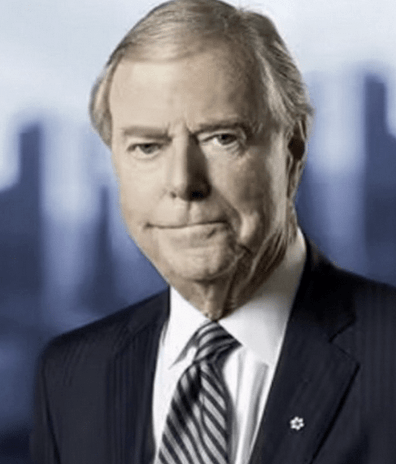Canada’s Quest for Clarity from America’s First Bully President

By Don Newman
February 4, 2025
“We don’t negotiate with bullies.” That was the mantra repeated over the weekend by many Canadian politicians as they unveiled countervailing tariffs on American exports to this country after President Donald Trump announced Saturday that he would impose 25% American tariffs on Canadian and Mexican exports. While the no-negotiation pledge hasn’t been entirely true, the bully blinked, and Trump’s tariffs have now been paused for 30 days, avoiding a devastating trade war.
Trump has more-than earned the “bully” moniker through his willingness to use the threat of a recession as coercion to force Canada to do any number of things, some of which make less sense than others, and one of which seems to be to abandon its status as a sovereign country without the inconvenience of a military invasion.
No previous U.S. president has behaved this way. It not only defies more than 200 years of relative harmony since the War of 1812, it defies all the norms of diplomacy. Theodore Roosevelt liked to use the word “bully!” as an interjection, to express enthusiasm. He wasn’t known for embracing it as a verb, certainly not in his dealings with Canada, notwithstanding the outcome of the Alaska boundary dispute of 1903.
Before the tariffs were paused following Trump’s conversations with Prime Minister Justin Trudeau and President Claudia Sheinbaum on Monday, governments had adopted two approaches to dealing with Trump’s bullying assault on our peace of mind and economic wellbeing, and they seem to have worked. The federal and provincial governments fought back by targeting American exports to Canada in a way designed to do tactical damage to the American economy.
Ottawa has also, up to a point, taken Trump’s demands at face value and acquiesced as much as possible to do whatever we can to stop illegal immigrants and drugs — particularly fentanyl. That now includes the appointment of a “fentanyl czar,” labelling Mexican drug cartels as terrorist entities, and spending $200 million to gather intelligence on organized crime. Many of the border measures were already included in a $1.3 billion package announced in December.
In Mexico, President Sheinbaum is also using the monthlong reprieve to address Trump’s main demands: Stop the flow of illegal drugs and illegal migrants coming across the border into the United States. To secure the pause, Sheinbaum pledged to put 10,000 Mexican troops along the border with the United States to intercept drugs and migrants. Over the next month, high-level negotiations between the two countries will attempt to resolve outstanding issues.
Maybe the next 30 days of negotiations will bring some clarity to Trump’s demands, and maybe they won’t.
It makes sense for Mexico to follow that approach. Its economy has been in rough shape and even more of its GDP is exported to the United States. And most of the illegal migrants and illegal drugs than come into the US come through Mexico.
Here in Canada, there could be a new problem. On Monday, Trump added another complaint to his list of grievances about his northern neighbour. He attacked Canada’s banking regulations, saying rules in this country don’t allow American banks to operate in Canada. In fact, American banks have a presence in this country providing a variety of commercial services including corporate and commercial lending, investment banking and mortgage financing.
What American banks can’t do is open retail branch networks, take deposits or do the kind of local banking that domestic Canadian banks do. By contrast, Canadian banks have the purchase of American banks and their branch networks as a part of their growth strategy, something that Americans banks can’t do in Canada.
Trump also repeated that America needs nothing that Canada exports south of the border because all of it is already produced domestically. But in a seeming contradiction he also said again he wants Canada to America’s 51st state. Why he would want that if the US is self-sufficient in everything Canada can offer remains unclear, but this narrative has been riddled with contradictions since November.
Maybe the next 30 days of negotiations will bring some clarity to Trump’s demands, and maybe they won’t. We say we don’t negotiate with bullies, but Donald Trump is no ordinary bully.
Policy Columnist Don Newman is an Officer of the Order of Canada, and a lifetime member and a Past President of the Canadian Parliamentary Press Gallery.
